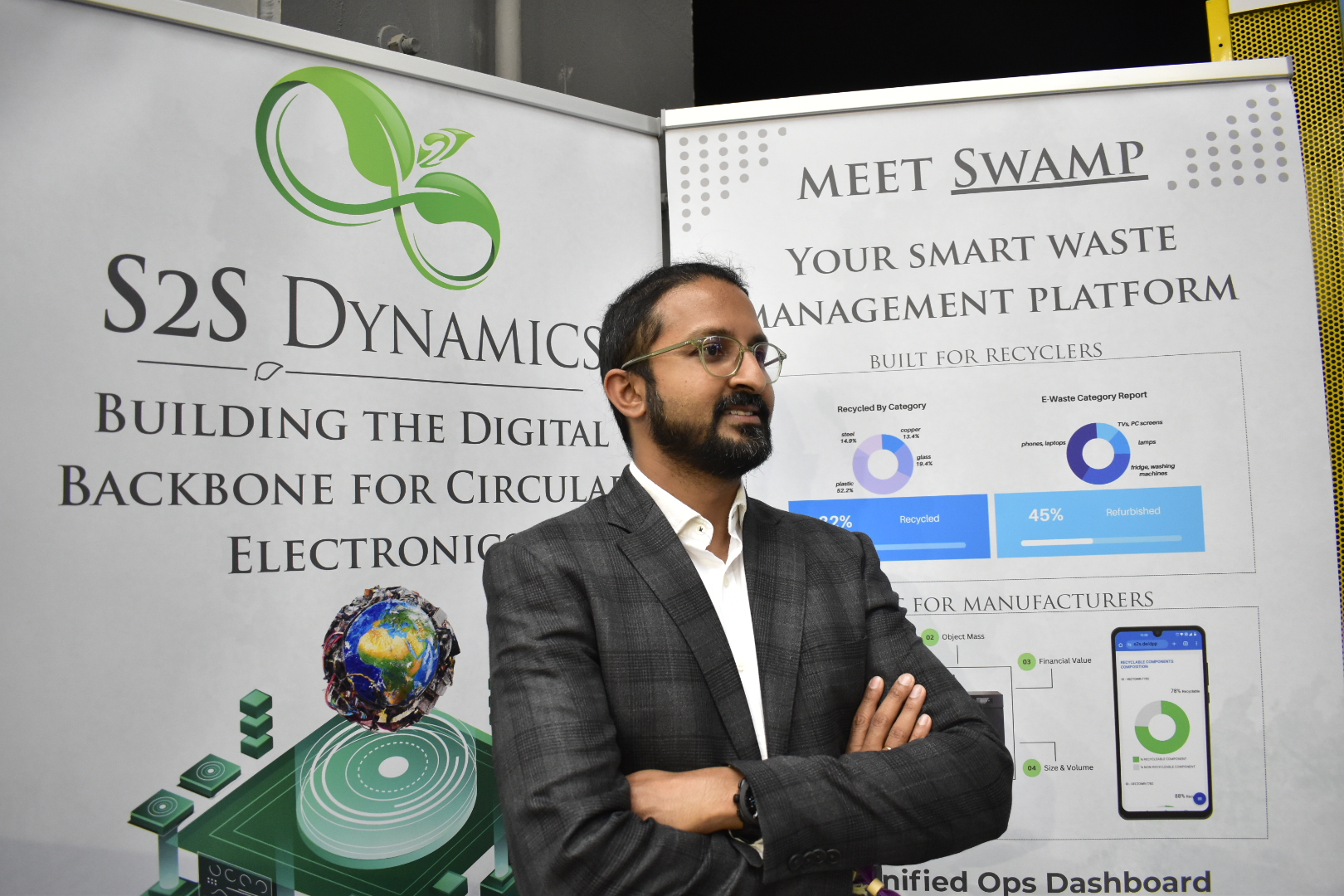
MADRID — S2S Dynamics, a German startup that tracks electronic waste (e-waste) through its artificial intelligence (AI)-powered platform, said developing countries have a worsening e-waste problem that can be addressed by connecting producers and recyclers.
“A lot of the waste that gets shipped from the developed world lands in the developing world, and that’s why we have these massive landfills full of waste,” Arjun Srihari, co-founder and chief commercial officer at S2S Dynamics, told BusinessWorld on the sidelines of the South Summit Madrid 2025 between June 4 and 6.
Founded in 2022, S2S Dynamics seeks to address the lack of data and transparency on e-waste, which is among the world’s fastest-growing waste streams.
“We started S2S Dynamics to create this data layer between the two most important stakeholders — the manufacturers who actually produce the devices, and the recyclers, where the devices end up,” Mr. Srihari said.
“These two stakeholders are very important in this recycling process, but they don’t speak to each other,” he added.
Less than 20% of electronic waste is documented and recycled, according to Mr. Srihari.
“That’s very troubling because that doesn’t mean that the waste disappears… and either in places like in India or even the Philippines, there are informal actors that are working with this waste and don’t have the benefits, tools, and the know-how that they should be getting,” he said.
The Philippines is among the top producers of e-waste in Southeast Asia, generating 537 million kilograms of e-waste in 2022, according to a joint report by the United Nations Institute for Training and Research and the International Telecommunication Union.
The Philippines was second only to Indonesia in the region. Indonesia had an estimated 1.886 billion kilograms of e-waste.
At end-of-life, e-waste is typically dumped in landfills, which generate greenhouse gas emissions and contribute to global warming.
“There’s a lot of valuable e-waste material that is lost and is not put back into the supply chain,” Mr. Srihari said, noting that $57 billion to $63 billion worth of e-waste is lost.
“I’m not saying that all of that money can be recovered through circular recycling, but a significant portion of it can,” Mr. Srihari said. “The main problem is that there’s no way to track the data.”
Mr. Srihari noted that the company’s learnings from the Indian market can provide insight in future expansions to developing markets.
Mr. Srihari said it has been in talks with potential investors from Europe, North America, India, and Southeast Asia.
S2S Dynamics is looking to scale its product across Europe before expanding globally, Mr. Srihari said. — Beatriz Marie D. Cruz



